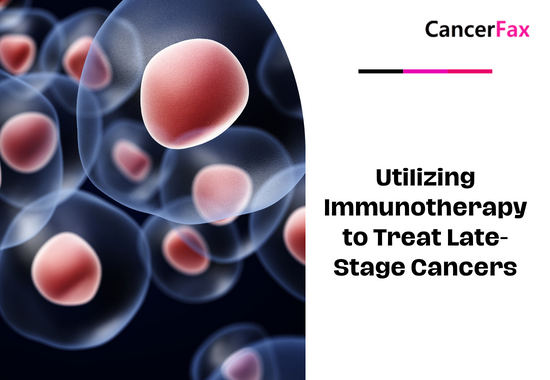Liver cancer treatment, liver cancer treatment plan, liver cancer treatment method, liver cancer treatment method, medicine for treating liver cancer.
Primary liver cancer
Primary liver cancer is one of the most common causes of malignant tumors and tumor deaths in developing countries, which seriously threatens people’s lives and health. Standardizing the diagnosis and treatment of liver cancer is very important to improve the diagnosis and treatment of liver cancer patients and improve the quality of life of patients.
There are many treatment options for liver cancer, including surgery, radiotherapy, radiofrequency ablation, venous embolization, and drug treatment. Among them, the chemotherapy effect of liver cancer is not good, because most liver cancer cells are not sensitive to chemotherapeutic drugs, even if the benefit of using chemotherapeutic drugs may be smaller than the side effects. Therefore, the proportion of patients with liver cancer treated with chemotherapy is not large.
Since 2007, the advent of sorafenib, the first targeted drug for liver cancer, has broken the situation that no medicine is available for liver cancer, but it has continued for more than 10 years. Only sorafenib can be used as first-line treatment for unresectable liver cancer. After drug resistance, don’t know how to choose?
However, through unremitting efforts, scientists broke through obstacles. In 2018, the second targeted drug that could replace sorafenib was successfully launched, that is, lovatinib! Both sorafenib and lovatinib It is a targeted drug used for first-line treatment of liver cancer. Later, a variety of second-line treatment drugs have also come out one after another!
Since 2017, many new high-level evidences in line with the principles of evidence-based medicine have emerged in the diagnosis, staging and treatment of liver cancer at home and abroad, especially research results adapted to China’s national conditions. This article focuses on the drug treatment plan and sequence in the latest edition of the “Specifications for the Diagnosis and Treatment of Primary Liver Cancer (2019 Edition)”, giving a clear guide for liver cancer friends.
Liver cancer treatment guidelines by FDA
for liver cancer friends.
| date | FDA approves liver cancer targeted drug | Indication | Domestic approvals |
| 2007-11 | Sorafenib (Sorafenib, Nexavar) | For the treatment of unresectable hepatocellular carcinoma or liver cancer | Domestically listed and covered by medical insurance |
| 2018-8 | Lenvatinib (Levatinib, Lenvima) | For first-line treatment of unresectable hepatocellular carcinoma | Domestic listing |
| 2017-4 | Regorafenib (Sigvarga) | Second-line treatment for sorafenib-resistant liver cancer | Domestic market |
| 2017-9 | Nivolumab (navumab, Opdivo) | Second-line treatment for sorafenib-resistant liver cancer | Domestic market |
Choice of first-line treatment for liver cancer
(1) Sorafenib
A number of clinical studies have shown that Sorafenib has certain survival benefits for patients with advanced liver cancer in different countries and backgrounds with different liver diseases (level of evidence 1).
The usual recommended usage is 400 mg orally, twice daily. Can be used for Child-Pugh Class A or B patients with liver function. Compared with Child-Pugh B liver function, Child-Pugh A patients’ survival benefit is more obvious.
Need to pay attention to the impact on HBV and liver function, and promote the management of basic liver disease throughout the process. The most common adverse reactions are diarrhea, weight loss, hand and foot syndrome, rash, myocardial ischemia, and hypertension, which usually occur within 2 to 6 weeks after the start of treatment.
(2) Lemvatinib
Lenvatinib is suitable for unresectable patients with stage IIb, IIIa, IIIb, liver function Child-Pugh A liver cancer, and its first-line treatment is not inferior to sorafenib. HBV-related liver cancer has better Survival benefits [185] (level of evidence 1).
Lenvatinib has been approved for use in Child-Pugh A liver cancer patients with advanced liver cancer. Usage: 12mg, oral, once daily for body weight ≥60kg; 8mg, oral, once daily for body weight <60kg. Common adverse reactions are hypertension, diarrhea, decreased appetite, fatigue, hand-foot syndrome, proteinuria, nausea, and hypothyroidism.
(3) Systemic chemotherapy
The FOLFOX4 (fluorouracil, calcium folinate, oxaliplatin) protocol is approved in China for the treatment of locally advanced and metastatic liver cancer that is not suitable for surgical resection or local treatment (level of evidence 1).
Multiple phase II studies have reported that systemic chemotherapy with oxaliplatin combined with sorafenib can improve objective response rates, extend progression-free survival and overall survival, and provide good safety (level of evidence 3).
For patients with good liver function and physical status, this combination therapy can be considered, but clinical randomized controlled studies are still needed to provide high-level evidence-based medical evidence. In addition, arsenic trioxide has a certain palliative treatment effect on advanced liver cancer (level of evidence 3). In clinical application, care should be taken to monitor and prevent liver and kidney toxicity.
Second-line treatment of liver cancer
(1) Regofini
Regorafenib is approved for use in patients with stage IIb, IIIa, and IIIb CNLC liver cancer who have previously been treated with sorafenib (evidence level 1). The usage is 160mg once daily for 3 weeks and discontinued for 1 week.
In China, the initial dose can be 80mg or 120mg once, once a day, and gradually increased according to the patient’s tolerance. Common adverse events are hypertension, hand-foot skin reactions, fatigue, and diarrhea.
(2) Navumab and Paimumab
The US FDA has approved the use of Navulinu monoclonal antibodies (Nivolumab) and Pabrolizumab monoclonal antibodies (Pembrolizumab) in patients with liver cancer who have progressed or cannot tolerate sorafenib after previous sorafenib treatment (level of evidence 2).
At present, immunological checkpoint inhibitors independently developed by Chinese companies, such as Carellidizum monoclonal antibodies, Treplepril monoclonal antibodies, and Xindili monoclonal antibodies, are undergoing clinical research. The combination of immunotherapy and targeted drugs, chemotherapeutic drugs, and topical treatments is also constantly being explored.
Other immunomodulators (such as interferon α, thymosin α1, etc.), cellular immunotherapy (such as chimeric antigen receptor T cell therapy, CAR-T, and cytokine-induced killer cell therapy, CIK) all have certain antitumor effects. However, it is yet to be verified by large-scale clinical studies.

